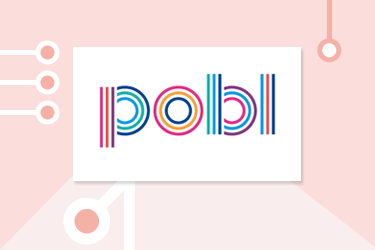How TAPPI Changed us – Pobl Group

Following completion of the second Phase of the TAPPI project, Pobl Group, one of the six TAPPI testbeds, tells us in this short Q&A how TAPPI influenced their work, the work of their staff and the everyday life of their residents.
What are the key lessons and insights that you have gained by implementing the TAPPI principles throughout the project? How have these lessons influenced your approach to technology enabled care (TEC) in housing for older and vulnerable people?
The TAPPI principles can be a useful blueprint for any form of digital transformation that is facing your organisation.
Technology Enabled Care must also be considered as part of a wider technology strategy/vision especially as sometimes there are basic barriers such as infrastructure and connectivity that need to be addressed if you are really going to maximise the benefits.
Can you share any specific success stories or notable achievements from your experience with the TAPPI project? How have these outcomes improved the lives of your tenants, and the work of your staff?
We saw positive outcomes not just from the technology itself, but from the sense of empowerment and growth that customers achieved through learning about technology and overcoming previous barriers and concerns.
Customers grew more confident, made positive connections with their neighbours, and improved their sense of self-esteem from being part of the project, much of which can be attributed to the coproduction approach.
Based on the learnings and outcomes of the TAPPI project, what recommendations or best practices would you suggest for future initiatives focused on technology enabled care in housing for older and vulnerable people?
Interoperability is still a challenge, especially as the TEC market is complex and fast growing. Don’t be afraid to challenge suppliers to get them to meet your requirements. The good ones will be willing to collaborate with you to help you achieve the outcomes you are looking for and will want to come on the learning journey with you. Basic infrastructure is also important; good quality connectivity is a fundamental requirement but is often the first barrier to overcome. There is also a lot to be said for keeping things simple and really focusing on the outcome that you are trying to achieve for the individual.
What has your experience of co-production with your residents been like throughout the project? And (how) do you intend to continue co-producing with them after the end of the project?
Good co-production can be resource intensive and take longer, but it really does bring benefits to staff and customers. We were often surprised by the way our assumptions about older people and technology were challenged through this process, and we changed ideas and approaches as a result. It is a great way of building trust with customers and the tools and approaches we used through TAPPI will have value across lots of different service areas in Pobl in the future.
Looking towards the future, what plans or recommendations do you have for sustaining and expanding the adoption of the TAPPI principles beyond the project's conclusion? How do you envision scaling up the successful practices and innovations developed during the project?
Leadership and organisational buy-in are essential to the successful implementation of TEC projects; ensuring you have the right people around the table with the right skills; this is key to making these projects drive long-term sustainable change and don’t become just another ‘pilot’. Having a sustainable funding model is also crucial; grant funding is often used to kick start innovation in this space, but for it to be long-term and transformational we need a funding model that supports its use as part of the Housing with Care offer.
Vikki Hiscocks, Head of Research and Development, Pobl Group.
Throughout the second Phase of the TAPPI programme, the 6 testbeds have given us regular updates published in Q&As form:
- TAPPI Phase 2 - Q&A with Pobl Group
Six months after their recruitment as one of the six TAPPI testbeds, Pobl Group gives us an update on their project in this short Q&A. - TAPPI Phase 2 - Introducing Pobl Group
A short Q&A introducing Pobl Group, one of the six successful TAPPI2 ‘testbeds’.
